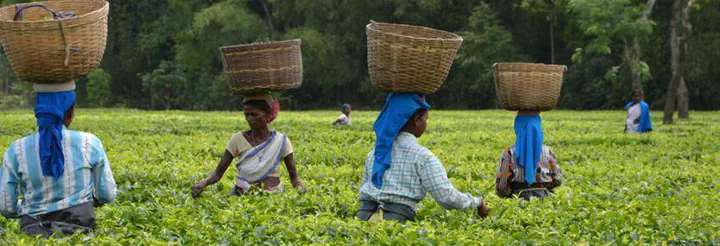Where is my cup of Darjeeling tea?
 Image credit: kusmitea.com
Image credit: kusmitea.com
The story of Darjeeling tea is unique. You won’t get its taste anywhere else. This is why Darjeeling tea is also called the ‘champagne of tea’. But the condition of this tea is still deteriorating. Darjeeling tea is fighting for its existence in the world market.
According to the report, half of the tea gardens in Darjeeling are on the verge of getting sold. Due to the rising wages of labourers, falling demand for tea and prices put Darjeeling tea in trouble. Let’s find out why such a crisis has arisen in front of Darjeeling tea.
Yes, the production of Darjeeling tea has not decreased, but its buyers and value have decreased. The main reason for this is the recession. It has been observed that Europe is the main market for Darjeeling tea exports. But the situation there is getting worse. The Russia-Ukraine war has thrown European countries into disarray. Due to this, the demand for Darjeeling tea is decreasing and the tea growers are facing huge problems.
Labor and union protests are a common occurrence in tea gardens. It affects production as well as exports. The protests tarnished the image of Darjeeling tea gardens in the world. Some countries have reduced the demand for Darjeeling tea due to this. Among them, the most prominent name in Japan.
Another well-known name in the Darjeeling tea industry is Japan. But Japan has reduced its demand. This is because of the Gorkhaland protests of 2017, which stopped tea work for about 100 days. In these difficult days, Japan shifted its focus from Darjeeling tea to Nepal.
Nepal has emerged as a major tea market for many countries. Nepalese tea has already become famous both in import and export. As a result, Darjeeling tea’s production and sale suffered greatly.
The tea plantations here are continuously running on losses due to reduced demand for Darjeeling tea from Europe and Japan. There are reports of inferior tea being sold from Nepal and premium tea being re-exported from Darjeeling.
Changes in government regulations have also had an impact. In 2003, the government refused to give GI tags to any imported tea. In November 2021, the Tea Board issued a notification banning the distribution of second-class imported tea in the domestic market.
Through this, the Bengal government allowed tea tourism in 15 percent of the tea plantations. Because of this, the local tea sellers are preparing to set up a resort on the tea garden land. For this, tea plantation land is being developed according to tea tourism.